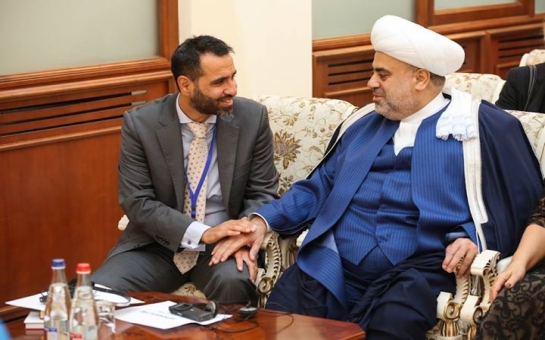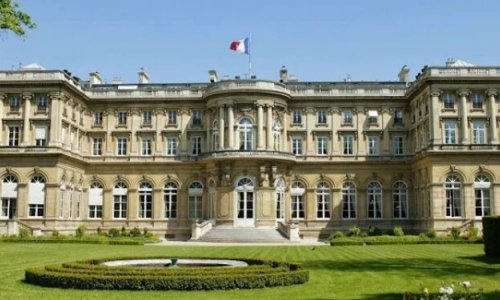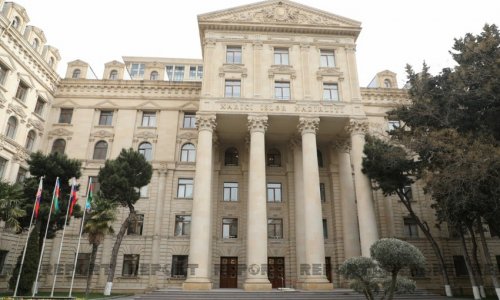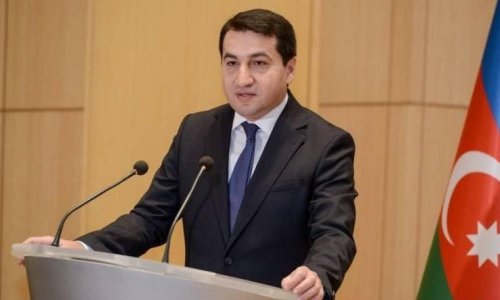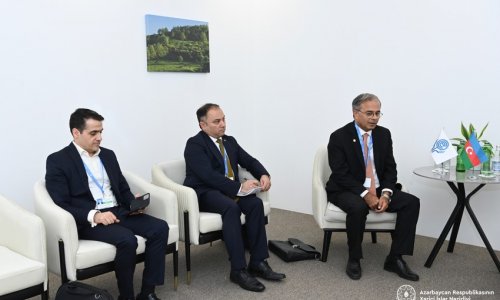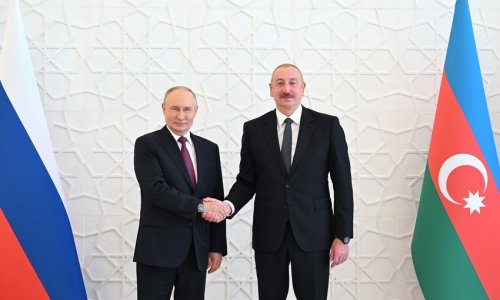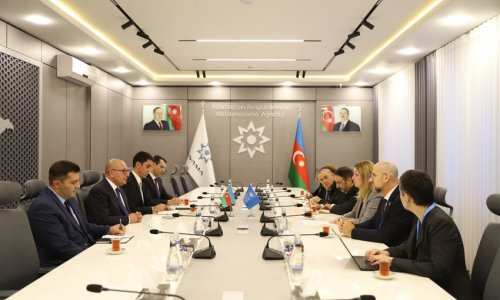An international conference on strengthening religious tolerance, co-organized by the OSCE Project Co-ordinator in Baku, the Government of the Republic of Azerbaijan, the Caucasus Muslims Board and the National Commission of Azerbaijan for UNESCO took place in Baku on 17 November, 2014. UK ambassador Irfan Siddiq made a speech:
Your Excellencies, Ladies and Gentlemen
It’s a great pleasure to join this distinguished panel for the opening of this important and timely conference.
Timely because today, religious division and conflict is increasing throughout the world. We only have to look at the situation in the Middle East to see this demonstrated all too graphically. Religious differences appear to be fuelling conflict, creating chaos and threatening peace and stability. Rather than being a source of enlightenment and harmony, groups acting in the name of religion are in many places spreading fear and hatred.
So all of us who make up the international community, have a common challenge that we must face. How do we tackle hatred and division and build greater mutual respect and understanding?
Promoting religious tolerance, as this conference seeks to do, is part of the solution. But I have to say, the concept of tolerance, though necessary, is to my mind, insufficient. It carries the connotation of putting up with, bearing or enduring difference. I believe to successfully tackle these challenges we must go further than this, we must not simply tolerate difference, but we should rather strive for active respect and understanding of the other. To be most effective this approach has to celebrate differences and foster harmonious co-existence by stressing the equal worth and dignity of all individuals, regardless of their background or beliefs.
This concept can be applied to the building of greater respect between religions, to create greater inter-faith harmony; within religions, to tackle sectarianism; or even between those with faith and those without.
But at the heart of all of this is a need to celebrate the fundamental worth and value of each individual. Community measures are absolutely necessary and can have a significant impact, but only if they recognise the importance of the individual. Individual human rights and freedoms are therefore central to religious harmony.
My country, the United Kingdom and Azerbaijan, where we are all now gathered, are two states and societies that are proud of our records of multiculturalism and co-existence. Azerbaijan has built this experience through a long history acting as a cross-road of peoples and cultures. The UK’s experience is more intensely rooted in the recent history of the legacy of empire and the connections that this built between the UK and people from all over the world. Both experiences are valuable and should be studied further. I’m sure we’ll hear a great deal about the Azerbaijani experience today, so let me say a little more about the situation in the UK.
I, myself, was born in London, the son of Pakistani, Muslim immigrants, who moved to the UK after the end of the British Raj, like many other children of Empire. At first dealing with such an explosion of newfound diversity after the end of Empire was a challenge. Acceptance of multiculturalism was built only slowly and incrementally. But over time, we have used this diversity to create a stronger society. One that is more open, embracing of difference and that celebrates the strength that multiculturalism creates. In my home city, London, you can now find temples, synagogues, gurdwaras, mosques and, of course, churches all co-existing in the same space. This diversity not only enriches our society, but by embracing difference, it helps create a greater understanding of one’s place in the world and of the world as a whole.
That is not to say that a multicultural approach does not bring challenges. Differences can create tensions as unfamiliarity and sometimes, ignorance, lead to misunderstandings. In the UK, the issue of Islamic extremism on the one hand and Islamophobia on the other, are both getting a lot of attention, particularly given the rise of the “so-called” Islamic State. But this is precisely where the value and importance of an open dialogue and full respect for all types of belief, as long as they do not harm others, becomes clear. Such an approach is crucial to building understanding and peaceful co-existence. I am sure discussion of these values will be at the heart of today’s debate.
I want to end by thanking the OSCE Baku Office and the Azerbaijani authorities for organising this event and wish all of you productive and interesting discussions. Thank you.

